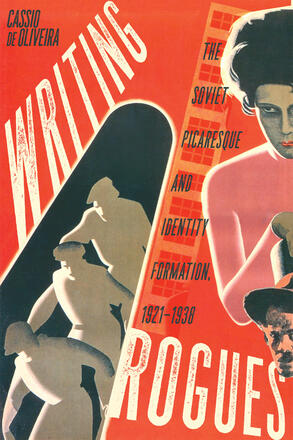
Writing Rogues
The Soviet Picaresque and Identity Formation, 1921-1938
How Russian literature about socially marginal characters came to define what it means to be Soviet.
Description
Plot elements such as adventure, travel to far-flung regions, the criminal underworld, and embezzlement schemes are not usually associated with Soviet literature, yet an entire body of work produced between the October Revolution and the Stalinist Great Terror was constructed around them.
In Writing Rogues Cassio de Oliveira sheds light on the picaresque and its marginal characters – rogues and storytellers – who populated the Soviet Union on paper and in real life. The picaresque afforded authors the means to articulate and reflect on the Soviet collective identity, a class-based utopia that rejected imperial power and attempted to deemphasize national allegiances. Combining new readings of canonical works with in-depth analysis of neglected texts, Writing Rogues explores the proliferation of characters left on the sidelines of the communist transition, including gangsters, con men, and petty thieves, many of them portrayed as ethnic minorities. The book engages with scholarship on Soviet subjectivity as well as classical picaresque literature in order to explain how the subversive rogue – such as Ilf and Petrov’s wildly popular cynic and schemer Ostap Bender – in the process of becoming a fully fledged Soviet citizen, came to expose and embody the contradictions of Soviet life itself.
Writing Rogues enriches our understanding of how literature was called upon to participate in the construction of Soviet identity. It demonstrates that the Soviet picaresque resonated with individual citizens’ fears and aspirations as it recorded the country’s transformation into the first communist state.
Reviews
“A tremendously well-written and enjoyable read. Writing Rogues identifies important issues, answers big questions, and fills critical and theoretical lacunae in the scholarship. De Oliveira's approach to the Russian picaresque should serve as a model for future scholars working on the relationship between Soviet literature and Soviet culture as a whole.” Marcia A. Morris, Georgetown University and author of Writing the Time of Troubles: False Dmitry in Russian Literature